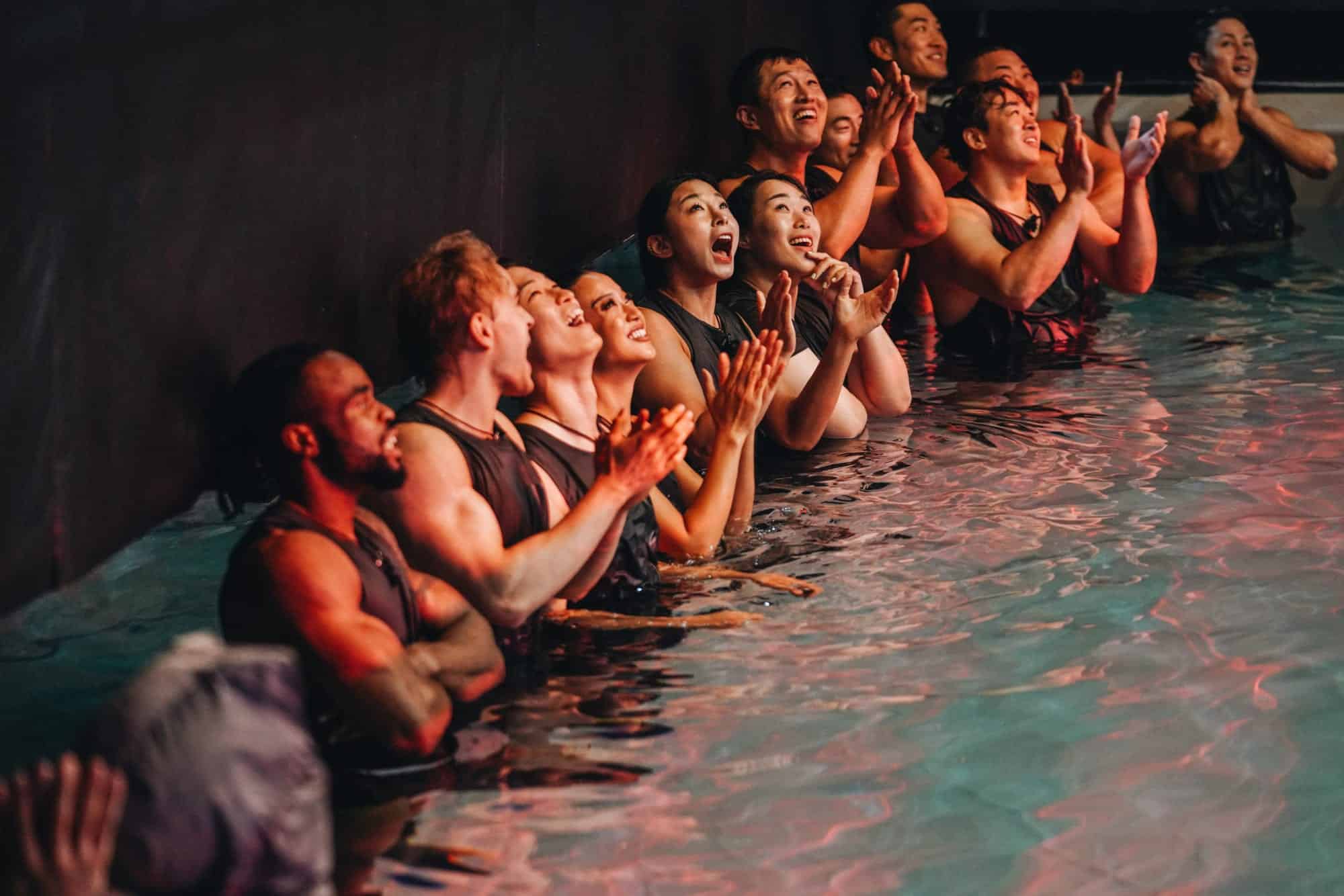Netflix’s new reality spectacle Physical: 100 pits South Korea’s strongest against each other says Sung-Ae Lee
South Korea’s latest Netflix sensation, the reality series Physical: 100, appears to be heavily influenced by the pop-culture phenomenon Squid Game.
The series is another variant of the survival game, a common reality TV format and, as in the fictitious Squid Game, a large prize will eventually go to the person who wins the final game. However, this prize is not an unimaginable amount (ultimately around US$35 million in Squid Game) but a more modest US$250,000 – and importantly does not depend on and increase with the gory elimination of players.
The premise of the series is that 100 people who share a common interest in sports or physical fitness have been invited to take part in a sequence of quests. They come from all walks of life, are male and female, have a wide range of body sizes and shapes, and are aged anywhere between 20 and 50.
The object of the competition is to find the person with the best physicality, an undefined notion that does not necessarily mean the strongest, fastest or best-looking, as some competitors assume.
The broadness of this premise contributes to the success of the series, which within two weeks of release rose to the number-one global ranking on Netflix, the first Korean reality series to achieve this position.
Deliberate allusions to Squid Game do invite a comparison between the shows beyond simply both being on Netflix and from South Korea. The physical layout of the setting, the masked anonymity of the show’s attendants, and the 50 per cent elimination rate in the first three quests are all apt comparisons.
But in Physical: 100 the prevailing theme is the human capacity for endurance, and any physical violence in one-on-one matches is part of the sport, rather than for brutality.
A key contrast with Squid Game is the greater and more active role assigned to women, who are depicted through a range of physical careers such as boxers, body-builders or fitness models, and through diverse body types. These women are far from the opportunistic or sacrificial roles assigned to women in Squid Game.
A second strategy is the use of an internal audience. Unlike Squid Game’s audience of cold-blooded capitalists, Physical: 100’s internal audience consists of the other contestants, who cheer on and express admiration for the skills and ingenuity of their fellows.
The camaraderie among the contestants extends to the one-on-one “death match” contests: players regularly express humility in defeat and declare they will now support their victorious opponent, or they express generosity in victory. Even during a match, they will acknowledge a good move, as when rugby player Jang Seong-min, repeatedly thrown by a female wrestler, picks himself up and flashes her an appreciative smile.
Where Squid Game took familiar children’s games and gave them a dark twist to form the challenges, Physical: 100 uses a Classical Greek frame instead. This evokes the reverence the Greeks held for the ideal body and athletic endeavour. The result is that attention is focused not on any past hardship suffered by the participants, but on the capabilities and aesthetics of the human body.
Although the contest is ostensibly to find the best body with the strongest physicality, the series persistently shows that no two bodies are alike and all are beautiful in their own ways.
Physical attributes also function in different ways, so that simple strength is often not sufficient. For example, diverse abilities are key to the outcomes of matches between teams in Quest 2, Sand Moving (Episodes 4–5). In its representation of underdog victories, this sequence invites comparison with the Tug of War sequence in Squid Game.
Strength or speed or other physical skills are celebrated, but in the end, strategy and teamwork is often equally or more important.
As one competitor puts it, “If you did your best, you accept the result.” Herein is arguably a major contrast with Squid Game: the contestants compete for high stakes, and often have large egos, but attract viewer empathy as they come to terms with their limitations and evidence a shared humanity.
To be human is to accept failure along with success, and this is arguably the series’ strongest critique of the pessimism of Squid Game.
Sung-Ae Lee is Lecturer, Macquarie University. This article is republished from The Conversation under a Creative Commons licence







Click here to change your cookie preferences